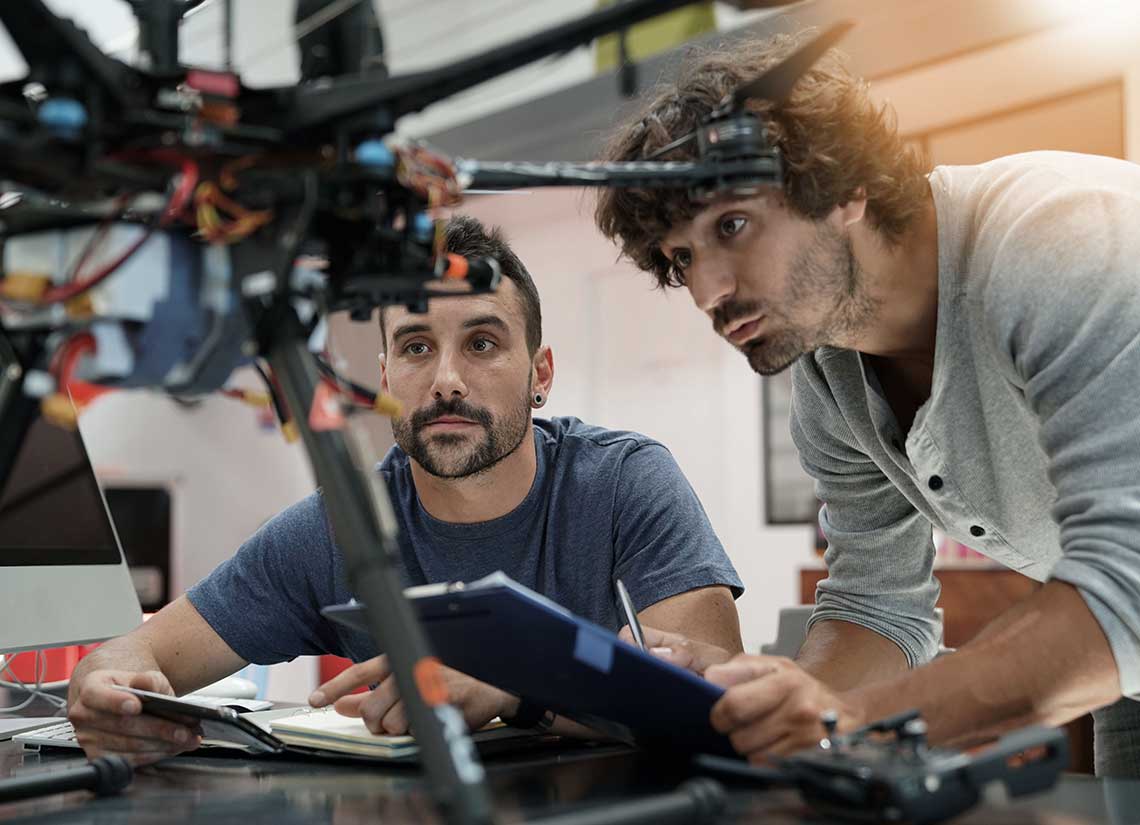
Unlock your research potential
Wondering if a future in research is for you?
Explore your future with an internship designed to help you navigate if a future in postgraduate research is for you.
Are you a current undergraduate student with a passion for scientific discovery and engineering innovation?
The Faculty of Science and Engineering at The University of Manchester invites you to embark on an explorative journey through our Summer Research Internship Scheme:
- Paid opportunities
- Hands-on experience.

Paid opportunities
Our Summer Research Internships are a paid opportunity:
- Aimed at talented undergraduate students who have the academic potential and motivation for postgraduate research study
- For those that lack the opportunities on their current course/programme to undertake a substantial research project.
Hands-on experience
This internship program is designed to provide you with hands-on experience in world-leading facilities, allowing you to complete your own research project.
As a participant, you will collaborate with faculty members, gain one-on-one guidance and invaluable insights into academia and industry.
This experience aims to strengthen:
- Your research skills
- Network connections
- Your decision for studying a PhD

What can you expect from the Internship?
Research skills
Explore your research passions and immerse yourself in a project that will develop your problem-solving, critical thinking, data analysis and project management skills.
Mentorship
Benefit from one-on-one guidance from experienced researchers who are experts in their field.
Networking
Networking opportunities connect you with like-minded peers and professionals, expanding your network within the academic and industrial spheres.
Life as a researcher
This internship is designed as an opportunity to explore the possibilities of pursuing a PhD, helping you to decide whether life as a postgraduate researcher is the right path for you.
Internship details
Duration
8 - 12 weeks (June/July - August/September 2025).
Eligibility
To be eligible for this summer research internship, you must:
- Qualify for Home fee status and be ordinarily resident in the UK;
- Be in the penultimate year of your undergraduate degree (second year of a three-year course, or third year of a four-year course). The internship will take place in the summer before your final undergraduate year.
And meet one of the following criteria:
- Be studying an undergraduate degree in a science or engineering discipline at a UK university that is not a member of the Russell Group.
Or meet one of the following widening participation criteria, i.e. you are:
- Identify as belonging to one of the following ethnic groups:
- Black or Black British – Caribbean;
- Black or Black British – African;
- Mixed – White and Black Caribbean;
- Mixed – White and Black African;
- Other Black background.
Or you're:
- a care leaver or care-experienced student;
- an estranged student;
- a young carer;
- a refugee or asylum seeker;
- disabled;
- from a military family.
Or you meet one of the following socio-economic criteria:
- if you were eligible for free school meals during secondary education;
- if you lived in an area of relative deprivation when applying to your undergraduate university course;
- if you received a full/partial maintenance loan for the first three years of your undergraduate course;
- if you lived in a postcode of low progression to higher education when applying to your undergraduate university course.
Stipend
Interns will receive a monthly stipend of £1500 for the duration of the project, and £500 will also be available to cover research costs for each intern.
Available projects
We have no available projects for 2025. Please revisit this page in Spring 2026 for details of projects for Summer Research Internships 2026.
How to apply
Application process
Applications are now closed for Summer Research Internships 2025. Please register your interest to be the first to know about projects and availability for Summer 2026.

